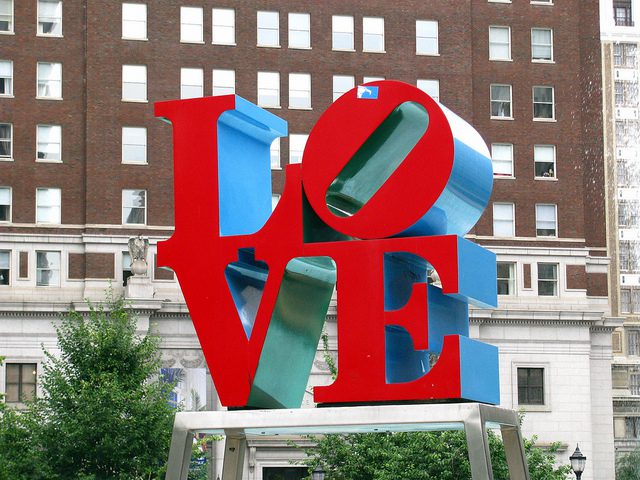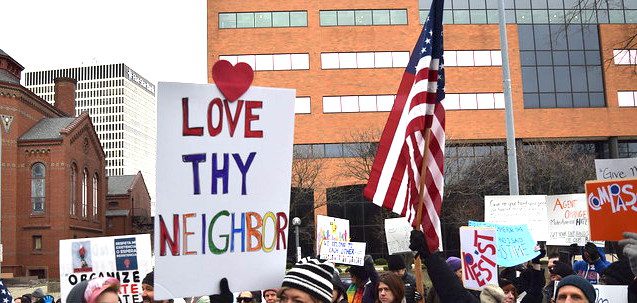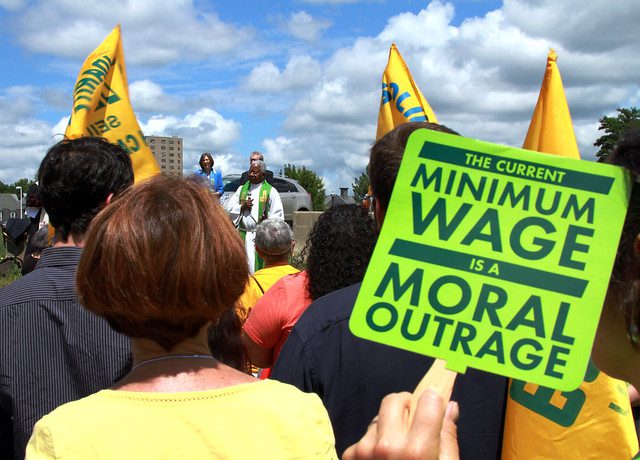
Photo by Jason Murphy via flickr, CC BY 2.0
A newly released report from The Pew Charitable Trusts on Philadelphia’s poor population is a deep dive into how it juxtaposes with a city on the rise. Some of the report’s larger points—that the majority of poor and low-income renters do not receive subsides and pay more than 50 percent of their income on rent, and that poor residents suffer disproportionately from chronic illnesses like asthma and diabetes, are ones that we largely know, but provide substantive background for people working locally to break the cycle of entrenched poverty, and get to the solutions that will allow those living in it to take part in the resurgence of cities like Philly.
Rising out of poverty—We know just how important place is: research has shown that a person’s life expectancy, average annual earnings, and overall quality of life can vary greatly from neighborhood to neighborhood. And there’s more evidence to add: new national maps released this week show which areas children have the best chance to get ahead in life. “They’re hoping it can help crack open a problem, the persistence of neighborhood disadvantage, that has been resistant to government interventions and good intentions for years,” according to the New York Times. It’s a fascinating dive into data.
We’ve made our admiration of librarians and libraries known here in Shelter Shorts, and this pilot program that allows job seekers with limited resources to borrow ties and handbags for interviews is a prime example of serving people where they are. A young librarian who’d hosted job preparation workshops and noticed that some participants did not have access to interview-appropriate clothing and accessories started the program. The program is funded by the New York City Public Library’s Innovation Project, which funds programs suggested by employees.
A program that would provide housing assistance to people recovering from substance abuse disorders is getting closer to becoming reality after the House and Senate passed a comprehensive opioid bill. The bill, dubbed as the most significant, bipartisan effort of the year, aims to reduce the supply of drugs, improve resources for those who need it, and come up with long-term solutions to address the opioid epidemic. According to the National Low Income Housing Coalition, HUD would prioritize funding for the housing assistance program based on the states that have the highest rates of overdose deaths. The bill is awaiting the president’s signature.
We thought Amazon made a bold move this week by increasing the salaries of all hourly employees to $15 an hour come Nov. 1. The move comes not to long after a group of Whole Foods employees sought to unionize and demanded a $15 minimum wage, among other items, from Amazon, which acquired the food chain last year. The wage increase is a step in the right direction, and it’s nice to see a big company take what could be the lead nationally, even though other companies, like Dr. Bronner’s, are doing it better. (They’re paying California employees 25 percent ABOVE the living wage and all of their health benefits, and the company has joined the national movement to raise the minimum wage … but we digress.) We are discouraged to hear that Amazon’s move comes with a trade-off: the company is getting rid of incentive pay and stock options, according to CNBC and The Guardian, which could cause longtime employees to make less money after the change. The old adage is true: there’s always more to the story.




Comments